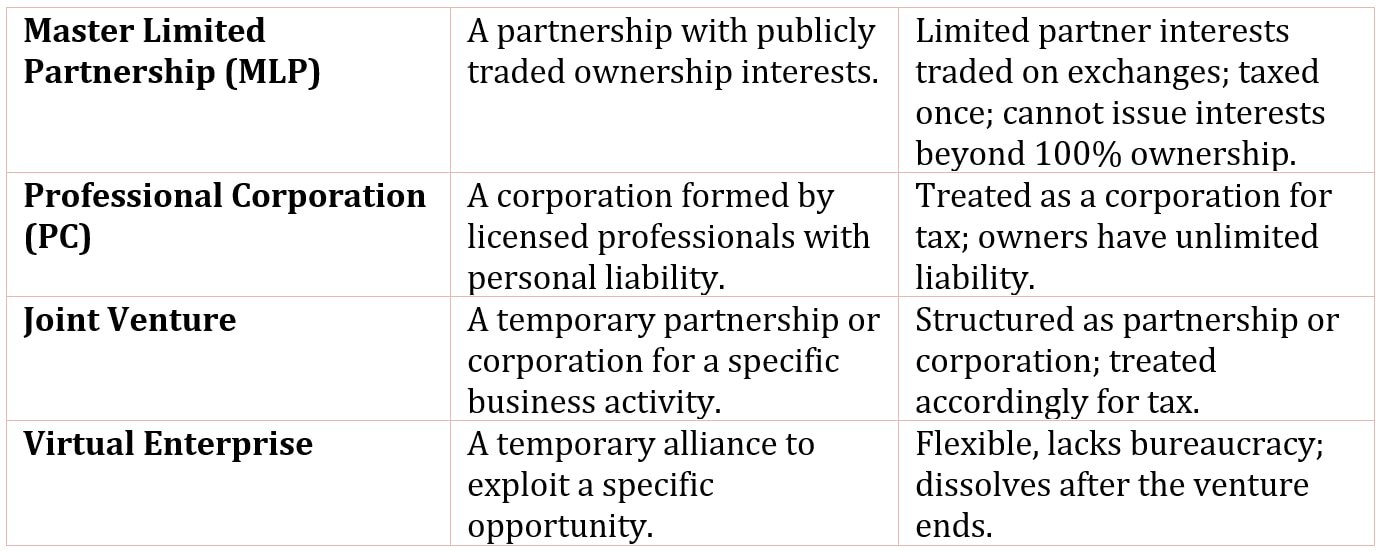Table of Contents
Other Forms of Business
The other forms of business are master limited partnership (MLP), professional corporation (PC), joint venture, and virtual enterprise.
In addition to the proprietorship, partnership, and corporate forms of business, an enterprise may be conducted using other forms of business, such as the master limited partnership, the professional corporation, and the joint venture.

Master Limited Partnership (MLP)
A master limited partnership (MLP) is a partnership with limited partner ownership interests that are traded on an organized exchange.
For example, more than two dozen master limited partnerships are listed on the New York Stock Exchange, including the Cedar Fair, Global Partners, and Sunoco Logistics Partners partnerships. Many of these MLPs operate in the oil and gas industry. Ownership interests, which represent a specified ownership percentage, are traded in much the same way as the shares of stock of a corporation.
One difference, however, is that a corporation can raise new capital by issuing new ownership interests, whereas a master limited partnership cannot because it is not possible to sell more than a 100% interest in the partnership, yet it is possible to sell additional shares of stock in a corporation. Another difference is that the income of a master limited partnership is taxed only once, as partner’s individual income.
Professional Corporation (PC)
Another variant of the corporate form of business is the professional corporation. A professional corporation is an organization that is formed under state law and treated as a corporation for federal tax law purposes, yet that has unlimited liability for its owners-the owners are personally liable for the debts of the corporation.
Businesses that are likely to form such corporations are those that provide services and require state licensing, such as physician’s, architect’s, and attorney’s practices since it is generally felt that it is in the public interest to hold such professionals responsible for the liabilities of the business.
Joint Venture
A joint venture, which may be structured as either a partnership or as a corporation, is a business undertaken by a group of persons or entities (such as a partnership or corporation) for a specific business activity and, therefore, does not constitute a continuing relationship among the parties.
For tax and other legal purposes, a joint venture partnership is treated as a partnership and a joint venture corporation is treated as a corporation.
U.S. corporations have entered into joint ventures with foreign corporations, enhancing participation and competition in the global marketplace. Joint ventures are becoming increasingly popular as a way of doing business.
Virtual Enterprise
Participants-whether individuals, partnerships, or corporations-get together to exploit a specific business opportunity. Afterward, the venture can be dissolved. Recent alliances among communication and entertainment companies have sparked thought about what the future form of doing business will be. Some believe that what lies ahead is a virtual enterprise-a temporary alliance without all the bureaucracy of the typical corporation-that can move quickly and decisively to take advantage of profitable business opportunities.

